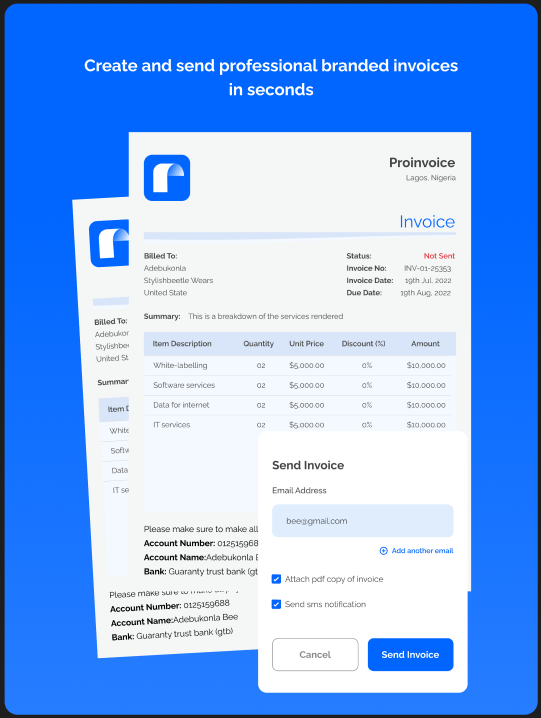Small Business Accounting Software Reviews: Managing your small business finances can feel overwhelming. From tracking every dollar spent to generating invoices and preparing for tax season, you need a reliable system. The right small business accounting software acts as your essential financial co-pilot. But with so many options on the market, how do you choose? This detailed guide breaks down the top solutions, helping you find the perfect fit to manage your money with confidence.
Stay organized as you grow. Use ProInvoice to manage billing and client relationships with ease.
QuickBooks Online: The Market Leader in the U.S.A.
QuickBooks Online is the industry benchmark for a reason. Its powerful features and user-friendly interface make it a top choice for a wide range of businesses. Accountants often recommend QuickBooks, which makes collaboration easy. This software handles everything from expense tracking and invoicing to powerful reporting and tax preparation tools. Its mobile app lets you manage finances from anywhere. A vast ecosystem of third-party integrations ensures it grows with your business. The tiered pricing structure offers flexibility, from basic plans for startups to more comprehensive options for established companies.
Related: How to Create a Cash Flow Projection — South African Small Business Guide with ProInvoice
Zoho Books: A Budget-Friendly Powerhouse in U.S.A
For freelancers and micro-businesses, Zoho Books offers a compelling value proposition. Its a completely free plan that includes a surprising number of features, making it an excellent no-cost starting point. Zoho’s paid plans are also very competitively priced. Zoho Books is part of a larger business suite. It integrates perfectly with other Zoho products like their CRM, creating a unified platform for managing your operations. This seamless connection streamlines your workflows.
Xero: Best for Team Collaboration
Xero stands out for its simplicity and a focus on collaboration. Its clean, intuitive interface makes financial management a breeze. It’s an ideal choice for businesses with minimal invoices and expenses. Xero’s collaborative features let you easily work with your accountant in real time. The software also has a strong ecosystem of integrations, connecting with over 1,000 apps. Its add-on for payroll, powered by Gusto, simplifies employee management. Xero works well for teams who prioritize a smooth, shared workflow.
ProInvoice: The Invoicing Champion
Service-based businesses, freelancers, and consultants often find their perfect match in FreshBooks. Built with invoicing at its core, this software makes creating professional, customized invoices simple. You can easily turn estimates and proposals into invoices with a single click. While it excels at invoicing, ProInvoice also includes robust features for time tracking, expense management, and project reporting. Its user-friendly design helps service professionals focus on their clients, not on complicated paperwork.
Read Also: 11 Best AI Accounting Software and Tools in the U.S
QuickBooks Solopreneur: A Tax Season Lifesaver
Intuit also created QuickBooks Solopreneur, specifically for part-time freelancers and gig workers. It focuses on simplifying tax season by helping you track mileage and categorize expenses. This tool is especially helpful for people who don’t have a separate bank account for their business. It lets you easily sort personal and business transactions, saving you hours of manual work. You can take photos of receipts and the app automatically captures key data. It’s a great tool for a tax-ready business.
Essential Features to Consider
When choosing your software, think about these key features. First, cost. Look at the monthly subscription fees and any extra charges for additional users or features. Second, integrations. Does the software connect with your other essential tools, like your payment processor or e-commerce platform? Third, a good mobile app is crucial. It lets you track expenses and manage finances on the go. Finally, consider reporting. The software should generate the reports you need to truly understand your business’s financial health. Choosing the right small business accounting software is a critical decision. By carefully weighing your business’s size, industry, and specific needs, you can select a tool that streamlines your operations and sets you up for long-term success. For more insights on financial tools, explore our article on Payment Processing Solutions.
Stay organized as you grow. Use ProInvoice to manage billing and client relationships with ease.














